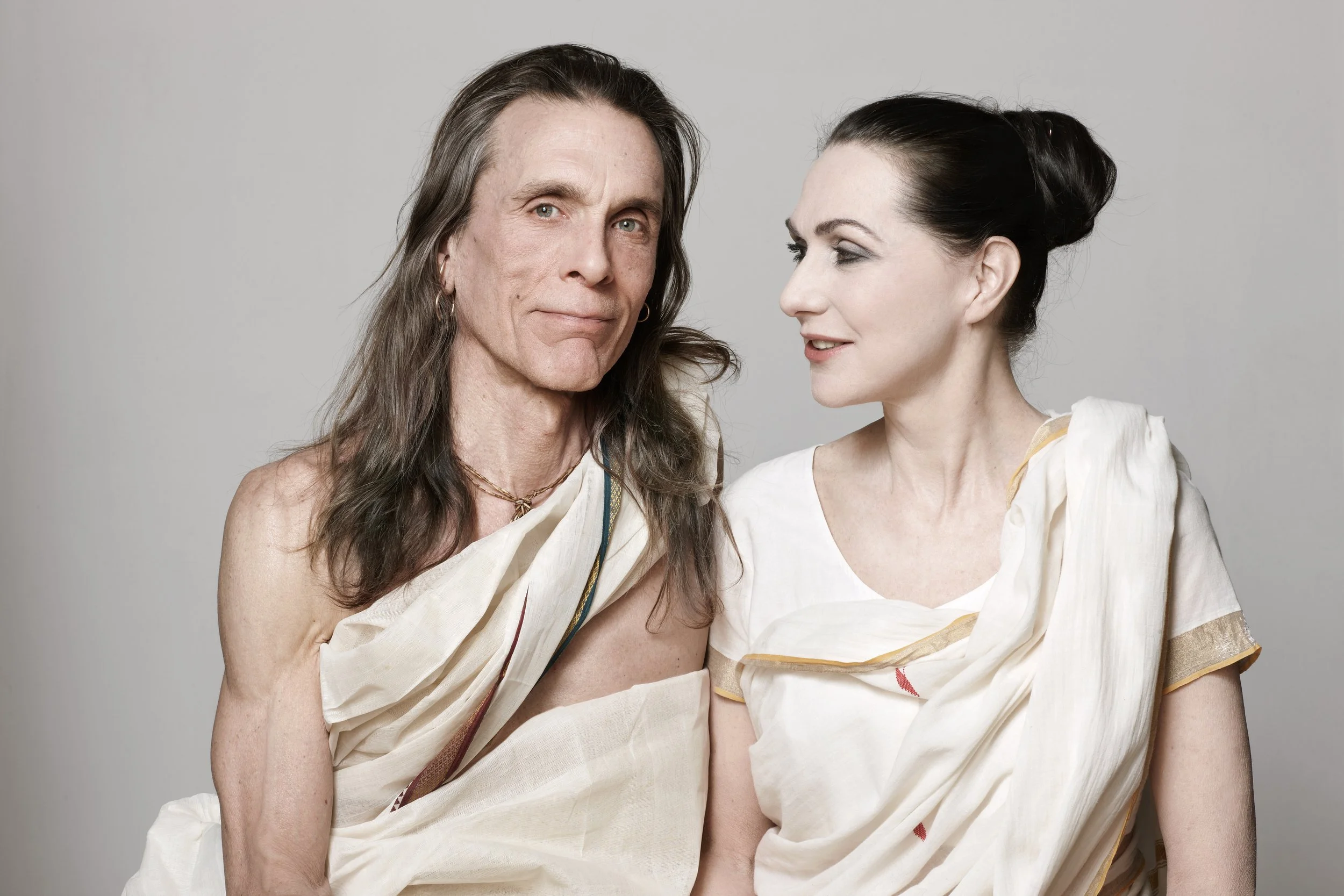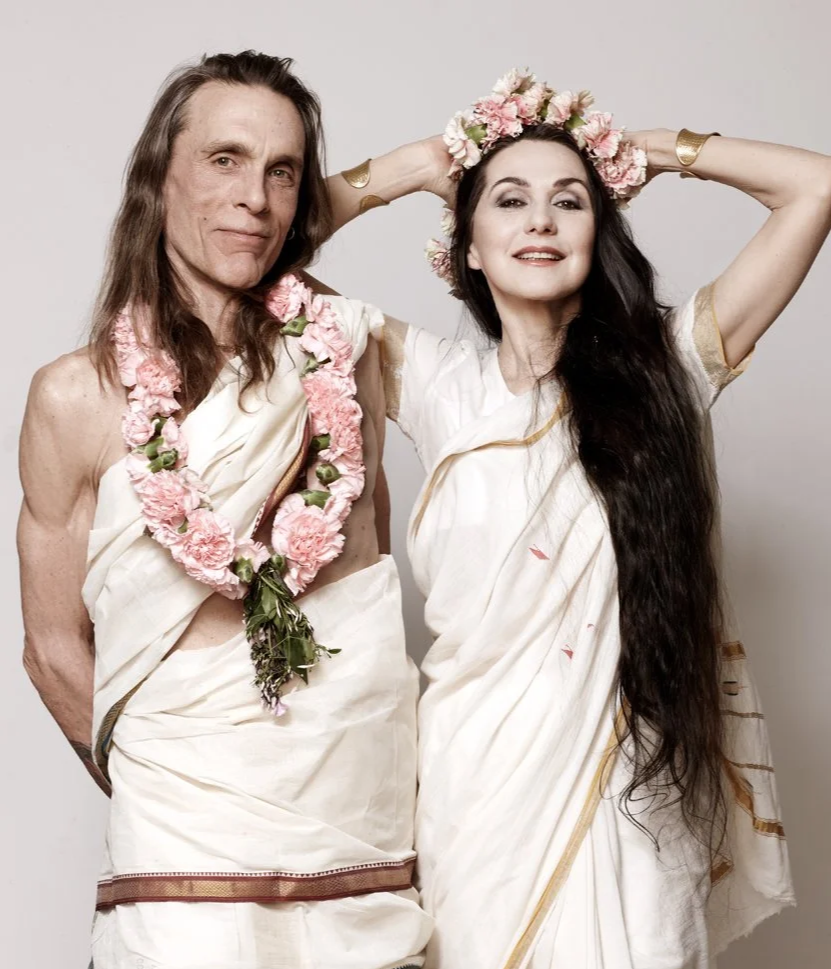Jivamukti Yoga
Jivamukti Yoga is a path to enlightenment through compassion for all beings. The Jivamukti method is grounded in the original meaning of the Sanskrit word asana as “seat, connection” – relationship to the earth. Earth implies all of life.
What is Jivamukti Yoga?
Jivamukti Yoga is a path to enlightenment through compassion for all beings. The Jivamukti Method is grounded in the original meaning of the Sanskrit word asana as "seat, connection" – relationship to the Earth. Earth implies all of life. Citing Patanjali's Yoga Sutra, which states that asana should be sthira and sukham, Jivamukti Yoga maintains that one's relationship to others (asana) should be mutually beneficial and come from a consistent (sthira) place of joy and happiness (sukham). This is a radical idea that, when put into practice, can dismantle our present culture, which is based on the notion that the Earth and all other animals exist for our benefit and to be exploited for our own selfish purposes. So the practice of asana becomes more than mere physical exercise to keep one's body fit or to increase strength or flexibility; it becomes a way to improve one's relationship to all others and thus lead to enlightenment – the dissolution of the sense of separateness, the realisation of the oneness of being, the discovery of lasting happiness.
Sharon & David -
the founders of Jivamukti Yoga
The founders of the Jivamukti Yoga method are Sharon Gannon and David Life. They met in 1983 in New York City and in 1984 created Jivamukti Yoga.
In 1986 they travelled to India and met their first guru, Swami Nirmalananda. On subsequent trips, they met their guru Sri K. Pattabhi Jois, and later in upstate New York, they met their guru Shri Brahmananda Sarasvati. Each of their gurus guided them further on their individual spiritual paths, and the teachings of their gurus helped shape the development of Jivamukti Yoga. Sharon and David studied with their gurus for many years and received their blessings to incorporate their teachings into the Jivamukti Yoga method. They have also studied with many other prominent yoga teachers.
The role of the guru is to expose the seeker's misperceptions and guide the seeker toward self-knowledge. Resting on this tradition but operating on a world stage, Sharon and David have illuminated the deeper, esoteric truths of yoga, linked them to present-day culture and lifestyle, and encouraged practitioners to let go of what they think they know and embrace the path to liberation in this lifetime. Through the innovations of Jivamukti Yoga, Sharon and David have brought the ancient teachings alive, going to the root of their wisdom and making it relevant to the contemporary world. They are pioneers in teaching yoga as spiritual activism/activation, demonstrating that yoga is a living tradition, a complete system for accessing the lasting happiness that is available to all beings. They incorporate their profound talents and experiences as artists, performers and musicians into their teaching styles, making their teachings compelling, exciting and empowering.
The 5 Tenets of Jivamukti Yoga
The core philosophy of Jivamukti Yoga is expressed through 5 tenets, which form the foundation of Jivamukti Yoga. Jivamukti teachers embody these tenets so that they colour all of their teachings, whether in Fundamentals classes, Open classes, other classes, workshops, or even just interactions with others in the Jivamukti community. In classes other than Open classes, the teacher does not necessarily teach the five tenets explicitly or even state them out loud. In an Open class, however, the five tenets have a special role, because it is part of the teacher's job to give the students an experience of all five tenets in each Open class, though again not necessarily by teaching them explicitly or even stating them out loud, but by allowing them to inform the class plan and teaching style. Each of the five tenets should be clearly identifiable in every Open class, even though the names of the tenets may not actually be spoken. By doing this, students learn not to see asana as separate from spiritual study or chanting or meditation, but rather to integrate all of the elements that make up Jivamukti Yoga into one unified practice. This provides for a well-rounded approach to our goal - enlightenment through compassion for all beings.
-
A nonviolent, compassionate lifestyle extending to other animals, the environment and all living beings.
-
Acknowledgement that God/Self-realisation is the goal of all yoga practices can be expressed through chanting, the setting of a high intention for the practice or other devotional practices.
-
Meditation: connecting to that eternal, unchanging reality within.
-
The development of a sound body and mind through deep listening can be incorporated in a class using recorded music, spoken word, silence or even the teacher's voice.
-
Study of the ancient yogic teachings, including Sanskrit chanting, drawn from the Focus of the Month to the extent possible.

